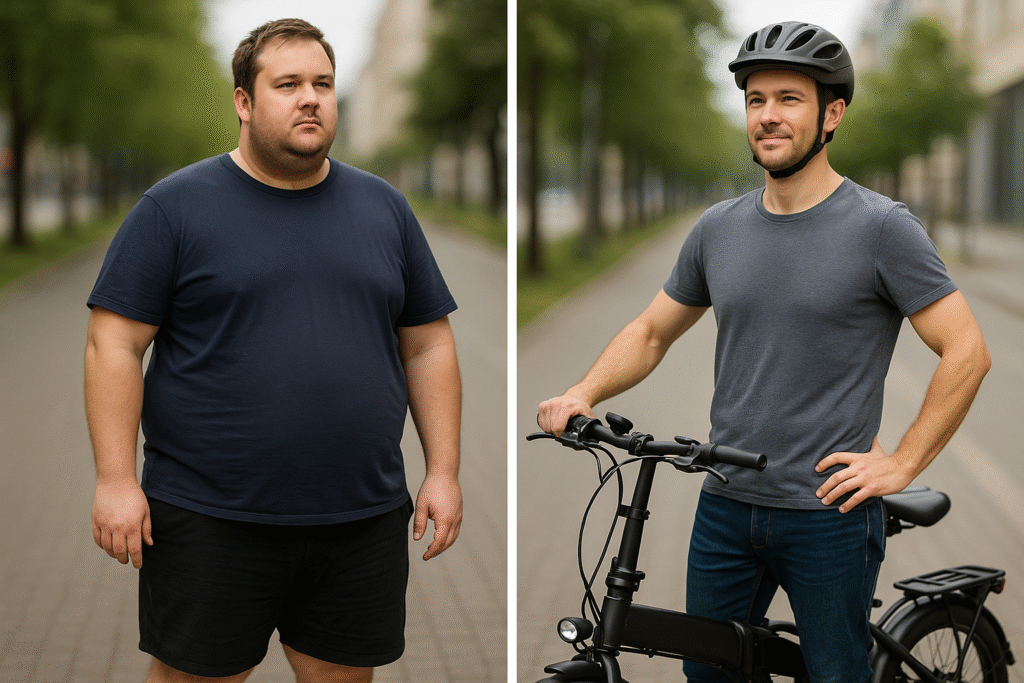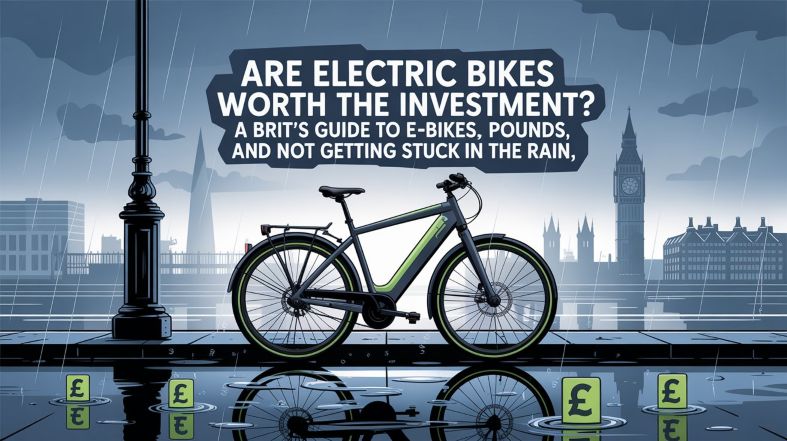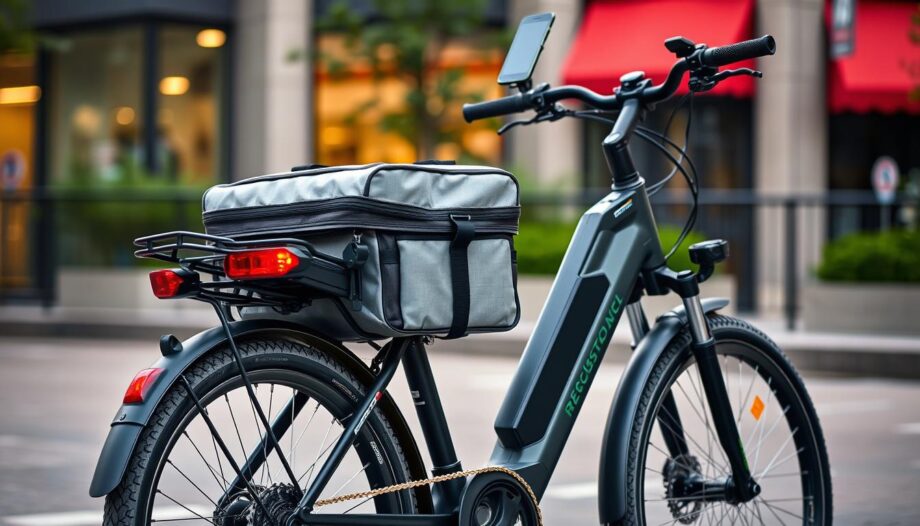Burn calories, boost your health, and have fun. Your e-bike journey starts here. Discover how e-biking can help you lose weight without the gym grind. With the right approach, electric bikes offer an enjoyable, sustainable way to achieve your fitness goals while exploring the outdoors.
The page explains how riding an electric bike can help you lose weight and get fit. It covers why e-biking works for burning calories, how many calories you can expect to burn, real success stories, tips to get the best results, and which e-bikes are best for fitness.

Ready to transform your fitness routine with an e-bike?
Why E-Biking Works for Weight Loss
E-biking combines the calorie-burning benefits of cycling with electric assistance that makes riding more accessible and enjoyable for everyone. This unique combination creates the perfect environment for sustainable weight loss.

Ride Longer & Further
The pedal-assist feature lets you extend your rides without exhaustion. Studies show e-bike riders travel 50% further on average than traditional cyclists, burning more calories over time.
Low-Impact Exercise
E-biking puts minimal stress on joints while still engaging major muscle groups. This makes it ideal for those with mobility issues or anyone looking to avoid high-impact workouts.
Consistent Calorie Burn
Research shows e-bike riders burn nearly as many calories as traditional cyclists over time because they ride more frequently and for longer durations.
“E-cycling provided physical activity of at least moderate intensity, which was lower than conventional cycling, but higher than walking.”
Systematic review of the health benefits of electrically assisted cycling
How Many Calories Can You Burn on an E-Bike?
The number of calories burned while riding an electric bike depends on several factors, including your weight, riding intensity, terrain, and the level of electric assistance you use.

Calorie Burn Comparison Chart
| Activity Type | 30 Minutes | 60 Minutes |
| E-Bike (Low Assist) | 200-300 calories | 400-600 calories |
| E-Bike (Medium Assist) | 150-200 calories | 300-400 calories |
| E-Bike (High Assist) | 100-150 calories | 200-300 calories |
| Traditional Cycling | 250-350 calories | 500-700 calories |
| Walking | 100-150 calories | 200-300 calories |
Calorie Calculation Formula: Calories Burned = MET × Weight (kg) × Time (hours)
For an 80kg person riding an e-bike for 1 hour in low assist mode (MET 4.0): 4.0 × 80 × 1 = 320 calories
Real Success Stories: Weight Loss Through E-Biking

“I lost 15kg in 6 months just by commuting on my e-bike every day! I replaced my 30-minute car commute with a 45-minute e-bike ride, and the weight started melting off. The best part is that it never feels like exercise—it’s just my daily transportation that happens to burn calories.”
— Michael, 42
“After struggling with gym memberships I never used, I invested in an e-bike and ride it 4 times a week. I’ve lost 10kg in 3 months and my cardiovascular health has improved dramatically. My doctor is amazed at my progress!”
— Sarah, 38
5 Tips for Losing Weight with an E-Bike

Ride Regularly (4-5 Times a Week)
Consistency is key for weight loss. Aim for at least 30-45 minutes of e-biking 4-5 times weekly. This frequency establishes a calorie deficit while giving your body time to recover between rides. Try integrating e-biking into your daily routine by commuting or running errands.
Track Your Rides with an App
Use fitness apps like Strava, MapMyRide, or dedicated e-bike apps to monitor your progress. Tracking distance, speed, time, and estimated calorie burn provides motivation and helps you gradually increase intensity. Many apps also offer community features to keep you accountable.

Start Slow, Then Increase Effort
Begin with shorter rides using higher assist levels, then gradually reduce assistance and increase distance. This progression prevents burnout and injury while steadily increasing calorie burn. Try decreasing electric assistance by one level every 2-3 weeks as your fitness improves.
Try Interval Riding
Incorporate high-intensity intervals by alternating between periods of high effort (low or no assistance) and recovery (higher assistance). For example, ride hard for 1-2 minutes, then recover for 3-4 minutes. This approach maximises calorie burn and improves cardiovascular fitness.
Combine with Healthy Eating
E-biking alone won’t lead to significant weight loss without dietary changes. Focus on whole foods, plenty of vegetables, lean proteins, and reduced processed foods. Stay hydrated before, during, and after rides to support metabolism and recovery.
Ready to start your e-biking weight loss journey?
Best E-Bikes for Fitness and Weight Loss
The ideal e-bike for weight loss combines comfort, adjustable assistance levels, good range, and quality components. Here are our top recommendations for fitness-focused riders:

City Commuter E-Bike
Perfect for daily riders looking to replace car trips. Features a comfortable upright position, multiple assist levels, and racks for carrying essentials.
- Upright riding position reduces strain
- Step-through frame for easy mounting
- Range: 40-60 miles per charge
- Weight: 45-55 lbs

Hybrid E-Bike
Versatile option for mixed terrain riding. Balances efficiency with comfort, making it ideal for longer fitness rides on various surfaces.
- Mid-drive motor for efficient climbing
- Multiple riding positions
- Range: 50-70 miles per charge
- Weight: 40-50 lbs

Mountain E-Bike
Designed for off-road adventures and maximum calorie burn. Tackles challenging terrain while providing electric assistance for hills and technical sections.
- Full suspension for rough terrain
- Powerful motor for steep climbs
- Range: 30-50 miles per charge
- Weight: 45-55 lbs
Frequently Asked Questions About E-Biking for Weight Loss

Can I lose weight riding an e-bike every day?
Yes, daily e-biking can significantly contribute to weight loss when combined with proper nutrition. Riding an e-bike burns 300-600 calories per hour, depending on assist level, terrain, and intensity. Consistency is key—even 30 minutes daily can create the calorie deficit needed for gradual, sustainable weight loss.
Is an e-bike cheating for weight loss?
Not at all! While e-bikes provide assistance, you’re still pedalling and burning calories. Research shows e-bike riders often exercise longer and more frequently than traditional cyclists because the experience is more enjoyable. The best exercise for weight loss is the one you’ll actually do consistently, and many people find e-biking fits this criterion perfectly.
Which e-bike is best for beginners trying to get fit?
Beginners should look for e-bikes with step-through frames, comfortable upright riding positions, and intuitive controls. City commuters and hybrid e-bikes typically offer the best balance of comfort and efficiency. Look for models with multiple assistance levels that allow you to gradually decrease assistance as your fitness improves.
How often should I ride my e-bike to lose weight?
For weight loss, aim to ride 4-5 times per week for at least 30-45 minutes per session. This frequency creates a consistent calorie deficit while allowing for recovery. As your fitness improves, focus on increasing duration or decreasing assistance rather than adding more days, as recovery is important for preventing burnout.
What’s the difference between pedal-assist and throttle for weight loss?
Pedal-assist e-bikes provide power only when you’re pedalling, making them better for weight loss as they ensure you’re always contributing effort. Throttle-controlled e-bikes can provide power without pedalling, which may reduce calorie burn. For fitness goals, choose a pedal-assist e-bike and use lower assistance levels as your fitness improves.
E-Biking for Weight Loss: Key Terms
Pedal Assist
A system that multiplies your pedalling effort with motor power, only activating when you pedal. Most e-bikes offer multiple levels of assistance.
Cadence
Your pedalling rhythm, measured in revolutions per minute (RPM). Maintaining a cadence of 70-90 RPM is optimal for efficient calorie burning.
Wattage
Measure of motor power. Higher wattage motors (500w+) provide more assistance but may reduce calorie burn if used at high assist levels.
Range
The distance an e-bike can travel on a single charge. Using lower assist levels extends range and increases calorie burn.
MET (Metabolic Equivalent of Task)
Measure of exercise intensity. E-biking typically has a MET value of 2.5-5, depending on assist level and effort.
Torque
Rotational force that helps with acceleration and climbing. Higher torque motors make hill climbing easier but require less effort from the rider.
Start Your E-Biking Weight Loss Journey Today

E-biking offers a unique combination of fun, accessibility, and effective calorie burning that makes it ideal for sustainable weight loss. By riding regularly, gradually reducing assistance, and combining your e-bike routine with healthy eating habits, you can achieve significant fitness improvements and weight loss results.
Remember, it’s not about speed—it’s about showing up. Your e-bike can take you there, making each ride an enjoyable step toward your health and fitness goals. Whether you’re commuting to work, exploring local trails, or simply enjoying the outdoors, e-biking provides a versatile platform for burning calories while having fun.
Ready to transform your fitness journey with an e-bike?





Love this article! E-biking sounds like such a fun and realistic way to lose weight and stay active without the gym grind. I’ve also come across SheMed’s blogs for more tips on women’s health and fitness.